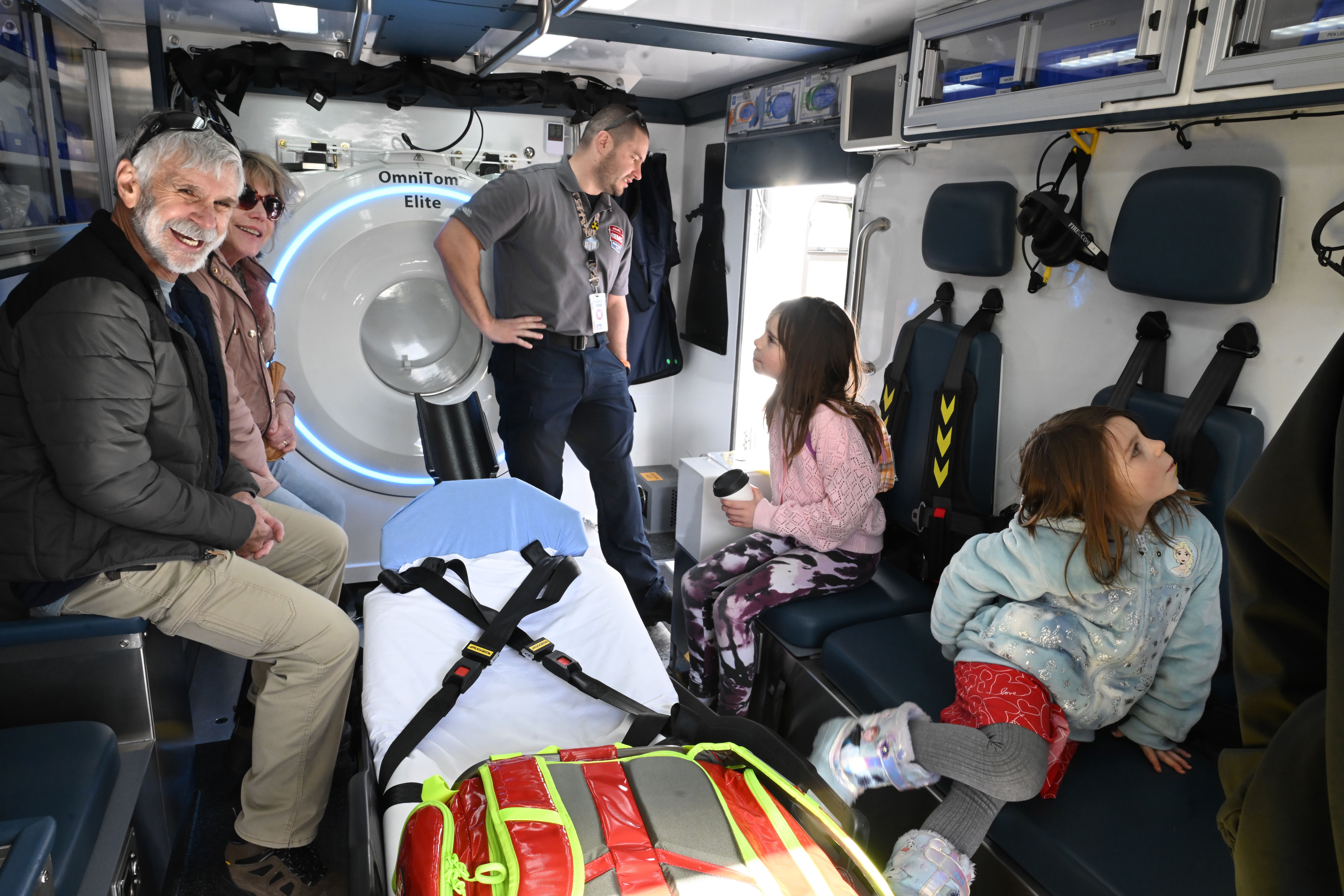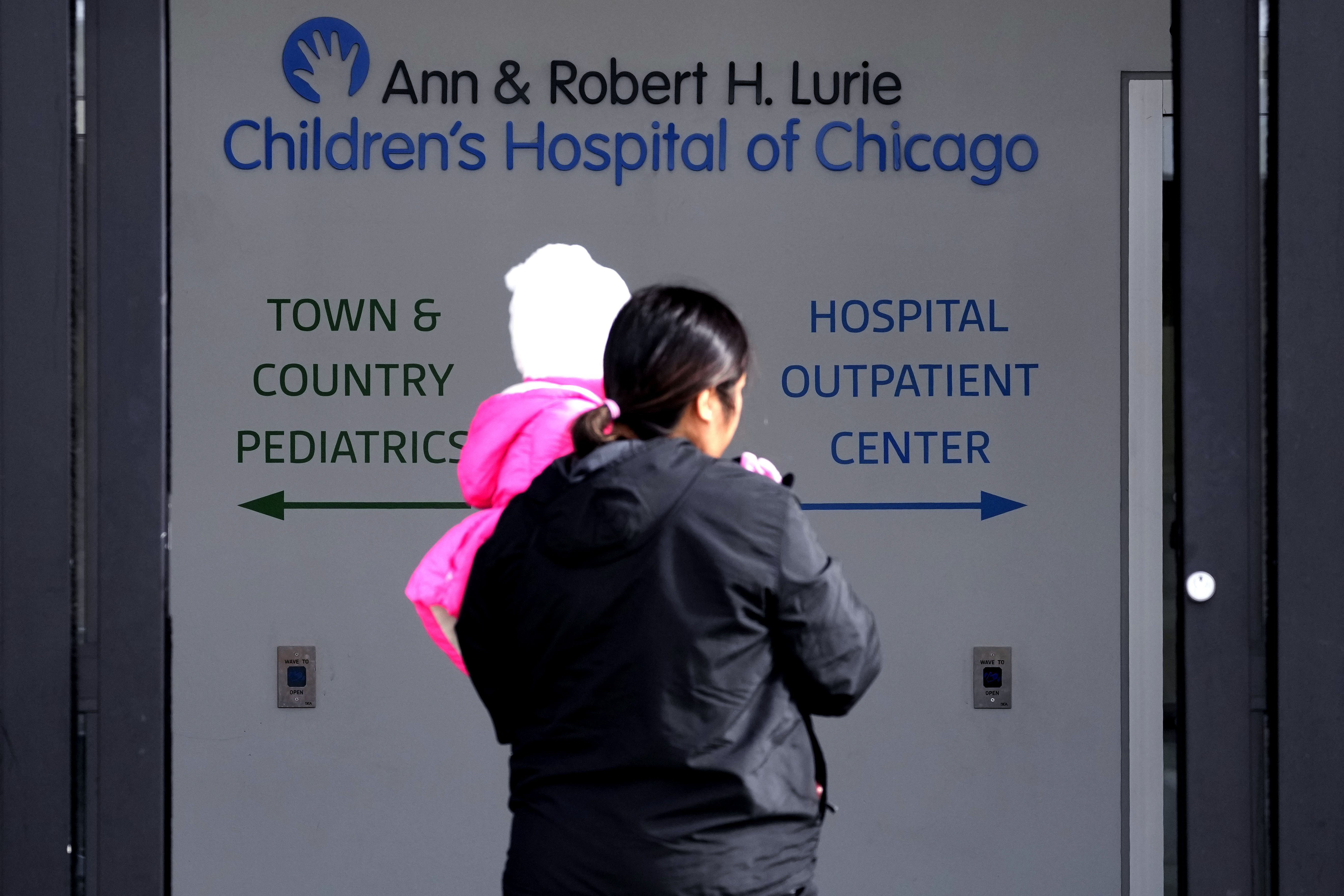[PRINT] UCHealth unveils second Mobile Stroke Treatment Unit to serve Colorado Springs (copy)

In 2017, Liz Wanersdorfer had a stroke at her home in Colorado Springs. Today, thanks to her husband’s quick thinking and the timely response of a mobile stroke treatment center, Wanersdorfer, a retired nurse, is able to move and speak normally, with no known deficits.
Fortunately for Wanersdorfer, UCHealth’s Mobile Stroke Treatment Center — then the only such unit in Colorado — was in town for its regular rotation between Colorado Springs and Aurora. The unit was in her driveway within 20 minutes of her husband’s 911 call, and trained responders were able to quickly assess, diagnose and treat her stroke.
“Without the MSTU’s being in town for its rotation from Aurora, my confirmed diagnosis and timely treatment would have been delayed several hours,” Wanersdorfer said. “My outcome would be totally different.”
On Wednesday, the health care system unveiled a second Mobile Stroke Treatment Unit that will serve Colorado Springs full time beginning Monday. It will be one of only two such emergency vehicles in the Rocky Mountain region, officials said. The next-nearest unit is based in Phoenix.
“These truly are lifesaving units,” said William Jones, medical director for the MSTUs and associate professor of neurology at University of Colorado’s School of Medicine.
At first glance, the unit looks like a regular ambulance. But it is much more, officials said.
“It’s essentially an emergency room for strokes, on wheels,” said first responder David Ornelas.
The units are equipped with a CT scanner, lab testing equipment, a telehealth system and clinicians who specialize in stroke diagnosis and treatment, officials said.
The most common type of stroke is caused by a blood clot obstructing an artery leading to the brain, according to UCHealth officials. In such cases, time is the crucial element.
“Time is everything. We always say, ‘Time is brain,’” Ornelas said. “For every minute that goes by without treating a stroke, you lose 2 million brain cells. By taking the stroke treatment to the patient, we’re able to save precious minutes. It makes all the difference.”
UCHealth’s original mobile stroke unit was part of a national study that confirmed that stroke patients cared for in mobile stroke units were treated faster, and had better long-term health outcomes, compared to those who were transported and treated by standard emergency medical services.
With ischemic strokes — like the one Wanersdorfer suffered — timely treatment with a clot-busting medication makes a positive outcome 2½ times more likely, the study concluded.
“Mobile units are saving lives and improving outcomes,” Jones said.
Knowing the signs of a stroke is essential to saving time and potentially preserving brain function, officials said. In Wanersdorfer’s case, her husband recognized the symptoms and called 911, which got the process started quickly.
“He recognized that I was slurring my speech,” she said. “I was oblivious. I thought I was speaking very clearly to him.”
Shortly after arriving at her home, responders were able to confirm a stroke diagnosis and begin administering clot-busting medication. By the time the unit arrived at the hospital, Wanersdorfer’s mobility had begun to improve.
A surgical stroke intervention team was ready to take Wanersdorfer into surgery when she arrived at the hospital. Less than 72 hours later, she was home.
“I am able to continue my independent lifestyle, play clarinet in a concert band, verbally communicate, be independently mobile and continue to watch my grandchildren grow up and enjoy retirement,” she said Wednesday.
“This is really important for our community,” Jones said. “This is going to save people not only from death, but from disability, and from being a burden, at least in their minds, to their families and their community.”
Strokes are the No. 5 cause of death and the leading cause of disability in the U.S., according to the American Stroke Association. To learn more about the signs of stroke, visit www.uchealth.org/stroke-care.
CT technologist Reuben Cross, center, gives tours to the public of UCHealth’s new Mobile Stroke Treatment Unit after a ceremonial ribbon-cutting on Wednesday. The new unit will begin operating full time Monday in Colorado Springs. The units are equipped with a CT scanner, lab testing equipment and specially trained clinicians.
Stroke survivor Liz Wanersdorfer speaks silhouetted against UCHealth’s new Mobile Stroke Treatment Unit during a ceremony Wednesday.
Mayor Yemi Mobolade talks with stroke survivor Liz Wanersdorfer after she spoke at a ceremony Wednesday. Wanersdorfer testified how a Mobile Stroke Treatment Unit, which spends half the time in Colorado Springs, saved her from having disabling effects of a stroke. The ceremony was held for UCHealth’s new Mobile Stroke Treatment Unit.







